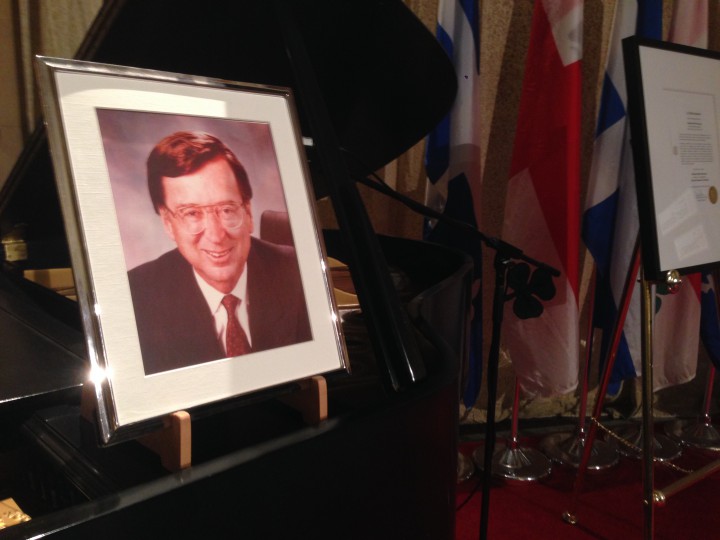Surreal. I was walking along the shore of the Pacific ocean in San Diego in the company of former Quebec premier Robert Bourassa. It was the week after the Oct. 30, 1995, Quebec referendum on provincial sovereignty. Emotional fallout lingered — even in California. The still bitter taste of defeat for sovereignists hung in the air.

I had found myself in California attending a speech given by Bourassa and had requested an interview which he graciously granted and which focused on the almost impossibly narrow margin (50.58 per cent) of victory for those rejecting Quebec pulling out of the Canadian confederation.
READ MORE: Ontario Premier Doug Ford to use notwithstanding clause on bill to cut size of Toronto council
On the losing side, Parti Quebecois premier Jacques Parizeau, on learning of the decision by Quebeckers, had spit out the bitter accusation that the “non” victory was the result of money and the ethnic vote.
“So now what?” I asked Bourassa, who had enraged Canadians outside Quebec and created deep concern about becoming second-class residents among non-Francophones who called the province home by invoking Section 33 of the Canadian Charter of Rights and Freedoms, the notwithstanding clause, to override a Supreme Court of Canada decision that parts of Quebec’s French language primacy legislation (Bill 101) were in violation of Charter guarantees.
“So, now what?” I remember clearly Bourassa answering, “Well, we’ll see.”
Did he have any regrets over invoking the notwithstanding clause? Absolutely not.
READ MORE: Montreal to re-name part of street in honour of Robert Bourassa
While a federalist, Bourassa explained his responsibility was still to safeguard the French language and francophone culture of Quebec. The notwithstanding clause was simply a tool available to set aside a court decision with which he could never agree and which threatened Quebec’s identity.
Interpretation of Quebec identity put us on the path to possible reapplication of Sec. 33 of the Charter in 2014. Pauline Marois, then a Parti Quebecois premier running for re-election, promised to again engage the notwithstanding clause to protect her controversial provincial secular Charter. When Marois lost the election that, for the present at least, sidelined any immediate Sec. 33 re-engagement in Quebec.

WATCH: Doug Ford moves to invoke notwithstanding clause regarding Toronto council cuts
This week, the issue of the use of Sec. 33 swirls around the Ontario government and Premier Doug Ford’s declaration he will use the notwithstanding clause to set aside a ruling by Ontario Superior Court Justice Edward Belobaba. The judge has issued a harshly and dismissively worded decision dismissing Bill 5, Ford’s legislation to slash the number of Toronto city councillors.
It has appeared for some time that courts in Canada have increasingly taken it upon themselves to make rather than interpret law. Governments of weak resolve, playing election percentages, have gladly gone along. Until now in Ontario.
ROY GREEN: Remember that time a premier asked if we still have a nation?
Premier Ford’s decision, re the notwithstanding clause, will likely not be the last time Sec. 33 of the Charter is engaged. In fact, given the mood in Western Canada, particularly in Saskatchewan, it should come as no surprise if the government of Premier Scott Moe were to reach for the notwithstanding provision, were an activist court to make a decision deemed counter to the government’s interpretation of the clear interests of the province.
Bourassa was completely sanguine and entirely unapologetic about his use of Sec. 33. He had a job to do as Quebec premier and he did it. Next question?
Roy Green is the host of the Roy Green Show on the Global News Radio network.
Listen to the latest from the Roy Green Show
Subscribe to the Roy Green Show Podcast now at Apple Podcast or Google Play




Comments